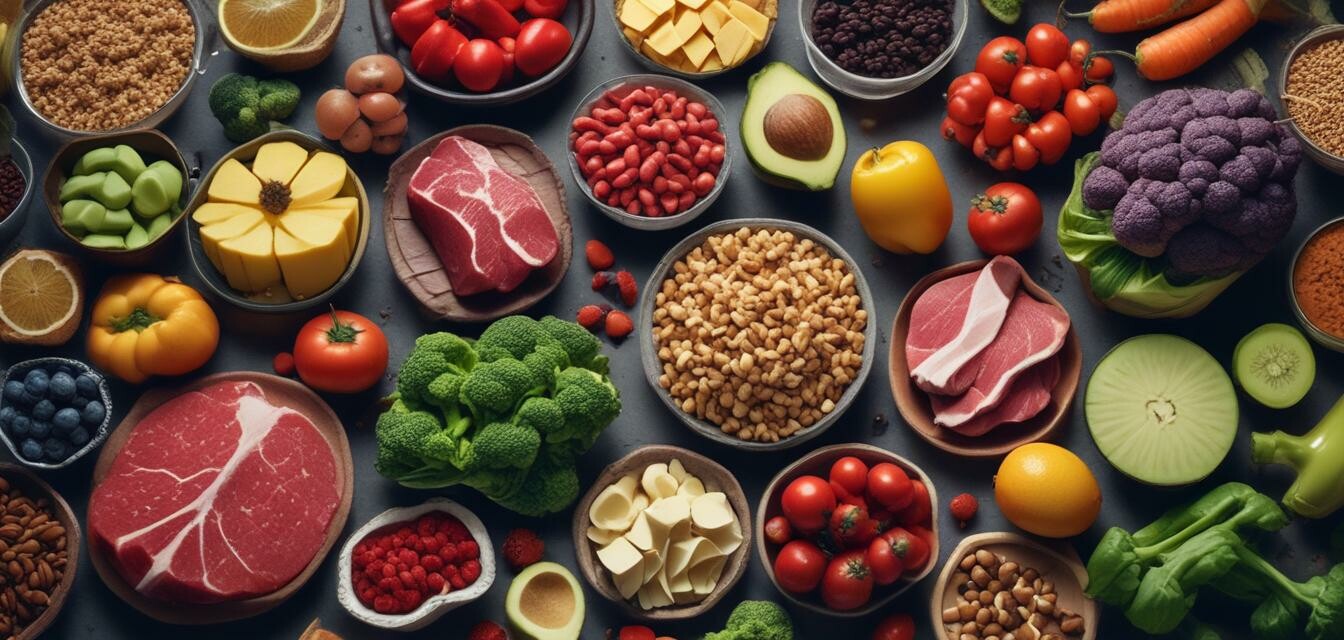
Nutrition strategies for building muscle
Key takeaways
- Understanding macronutrients is crucial for muscle growth.
- Protein intake should be prioritized and timed around workouts.
- Carbohydrates play an essential role in providing energy.
- Healthy fats contribute to hormone production necessary for muscle growth.
- Meal timing and frequency can affect muscle recovery and growth rates.
Building muscle isn't just about lifting weights; it involves a strategic approach to nutrition that supports your training efforts. The right balance of macronutrients, meal timing, and overall diet can significantly impact your muscle-building journey. In this article, we'll dive deep into effective nutrition strategies that will help you build muscle effectively.
Understanding macronutrients
Macronutrients are the building blocks of your diet and are essential for muscle growth. They are divided into three main categories: proteins, carbohydrates, and fats. Understanding the role of each macronutrient is vital for anyone looking to increase their muscle mass.
| Macronutrient | Role in Muscle Building | Recommended Intake |
|---|---|---|
| Protein | Repairs and builds muscle after workouts | 1.6 to 2.2 grams per kg of body weight |
| Carbohydrates | Provides energy for workouts | 3 to 7 grams per kg of body weight depending on activity level |
| Fats | Supports hormone production | 20-35% of total caloric intake |
Timing your nutrition around workouts
When you eat is just as important as what you eat. The timing of your meals can influence your performance and recovery:
- Pre-workout meal: Have a meal rich in carbohydrates and moderate in protein about 1-2 hours before your workout to fuel your performance.
- Post-workout meal: Consume protein and carbohydrates within 30 minutes after your workout to aid recovery and replenish glycogen stores.
Meal frequency
How often you eat can also impact your muscle-building goals. A higher meal frequency may help to stimulate muscle protein synthesis.
- Opt for 4-6 smaller meals throughout the day.
- Aim to include a source of protein in every meal to optimize muscle recovery.
Food sources for optimal nutrition
The quality of your food choices plays a significant role in reaching your muscle-building goals. Incorporate the following foods into your diet:
| Food Group | Examples |
|---|---|
| Protein | Chicken, beef, fish, eggs, beans, lentils |
| Carbohydrates | Rice, oats, quinoa, sweet potatoes, fruits |
| Fats | Nuts, seeds, avocados, olive oil, dairy |
Hydration
Never underestimate the importance of hydration in your muscle-building journey. Staying properly hydrated contributes to optimal performance and recovery:
- Drink water throughout the day, aiming for at least 2-3 liters.
- Consider electrolytes, especially after intense workouts.
Supplements to consider
While whole foods should be your primary source of nutrition, certain supplements can aid in your muscle-building strategy. Although it's important to consult with a healthcare professional before starting any supplements, here are a few popular options:
- Protein powder: Convenient source of protein that can help meet daily intake.
- Creatine: Can enhance athletic performance and increase muscle mass.
- BCAAs: May help reduce muscle soreness and improve recovery.
Common mistakes to avoid
As you navigate your muscle-building nutrition strategy, be mindful of these common mistakes:
- Neglecting protein intake: Aim for consistent protein consumption throughout the day.
- Focusing solely on protein: Don’t forget about the importance of carbohydrates and fats.
- Inadequate hydration: Always keep your hydration levels up to optimize your performance.
Conclusion
Effective muscle building is not just about lifting weights; it’s a comprehensive approach that includes consistent, balanced nutrition. By understanding the role of macronutrients, timing your meals properly, and making mindful food choices, you're setting yourself up for success. Remember to stay hydrated and consider supplementation if necessary, but always prioritize whole foods first. For more tailored advice, visit our Tips and Advice section.
Pros
- Helps in building lean muscle mass effectively
- Improves exercise performance
- Enhanced recovery post-workout
Cons
- Requires careful planning and commitment
- May require additional costs for quality foods and supplements